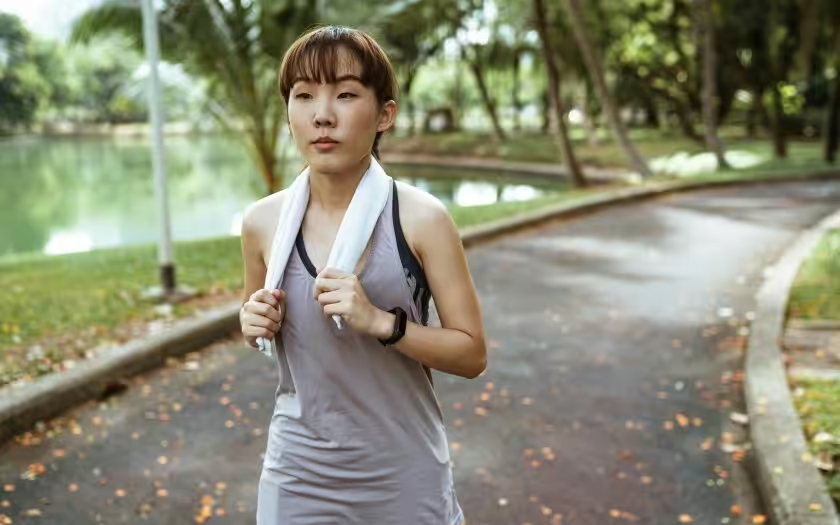 Starting today, you can offset MediShield Life premium with Healthpoints earned with the Healthy 365 app. Singapore’s healthcare ecosystem is evolving again, and this time, it is rewarding citizens not just with better health but with real financial savings. As part of the Healthier SG initiative, the Ministry of Health has launched a three-year pilot programme that allows residents aged 40 and above to redeem Healthpoints for discounts on their MediShield Life premiums. It is a strategic move that blends preventive care with financial incentives, and it could reshape how Singaporeans think about wellness.
Starting today, you can offset MediShield Life premium with Healthpoints earned with the Healthy 365 app. Singapore’s healthcare ecosystem is evolving again, and this time, it is rewarding citizens not just with better health but with real financial savings. As part of the Healthier SG initiative, the Ministry of Health has launched a three-year pilot programme that allows residents aged 40 and above to redeem Healthpoints for discounts on their MediShield Life premiums. It is a strategic move that blends preventive care with financial incentives, and it could reshape how Singaporeans think about wellness.
MediShield Life is Singapore’s national health insurance scheme that provides lifelong coverage for large hospital bills and selected costly outpatient treatments. It is designed to cover most subsidized care at public hospitals, with premiums payable via MediSave. All Singaporeans and permanent residents are automatically enrolled, ensuring no one is denied coverage due to age or pre-existing conditions.
Healthpoints are earned through the Healthy 365 mobile app, developed by the Health Promotion Board. Users accumulate points by engaging in wellness activities like completing exercise challenges, logging sleep hours, buying Healthier Choice products, and attending Health Plan consultations at Healthier SG clinics. Until now, these points were mostly redeemed for lifestyle vouchers that can used at FairPrice, Kopitiam, and similar outlets. This new programme adds a more impactful option by allowing points to be redeemed for offsetting the cost of national health insurance.
The conversion rate is generous. For every 150 Healthpoints, users can redeem $2 off their MediShield Life premiums, double the usual rate of $1 for the same number of points. That means someone who consistently maintains an active lifestyle could earn up to $540 in annual premium discounts, based on the maximum Healthpoints cap of $270 per year. Even moderate participation such as a weekly exercise and a Healthier SG consultation could yield around $110 in annual savings.
This matters more than ever. MediShield Life premiums are set to rise, with some age groups facing increases of up to 35% by 2028. For example, policyholders aged 41 to 50 currently pay $637 annually before subsidies, while those aged 51 to 60 pay $903. A $110 discount would not erase the increase, but it is a meaningful buffer especially when combined with government subsidies and MediSave top-ups.
Beyond the numbers, this programme signals a shift in how health is valued. Instead of penalizing claims, as seen in private insurance models, the government is rewarding proactive health management. It is a subtle but powerful reframing: your daily steps, food choices, and sleep habits now have direct financial implications. And unlike “no-claims discounts,” this model doesn’t discourage necessary medical care. It encourages prevention without punishing treatment.
Strategically, this pilot aligns with Singapore’s broader push toward preventive healthcare. It is a nudge for citizens to take ownership of their health, while reducing long-term strain on the system. For policymakers, it is a testbed for integrating behavioural economics into national insurance frameworks. For individuals, especially those managing chronic conditions or approaching retirement, it is a call to action. Staying healthy is not just about avoiding illness anymore, it is about unlocking financial benefits.
Getting started is simple. Users need to download the Healthy 365 app, enrol with a Healthier SG clinic, complete their first Health Plan consultation, and participate in app-based challenges. Once Healthpoints are redeemed, the discount is automatically applied at the next annual policy renewal.
This is not just a health initiative. It is a financial strategy. By linking lifestyle choices to insurance costs, Singapore is pioneering a model that could inspire similar programmes across Southeast Asia. For residents, it is a win-win. You get better health, lower premiums, and a more empowered relationship with personal wellness.
As Health Minister Ong Ye Kung put it, “When we look after our health, we are less likely to need expensive medical treatment later.” Now, that care comes with a tangible reward.
